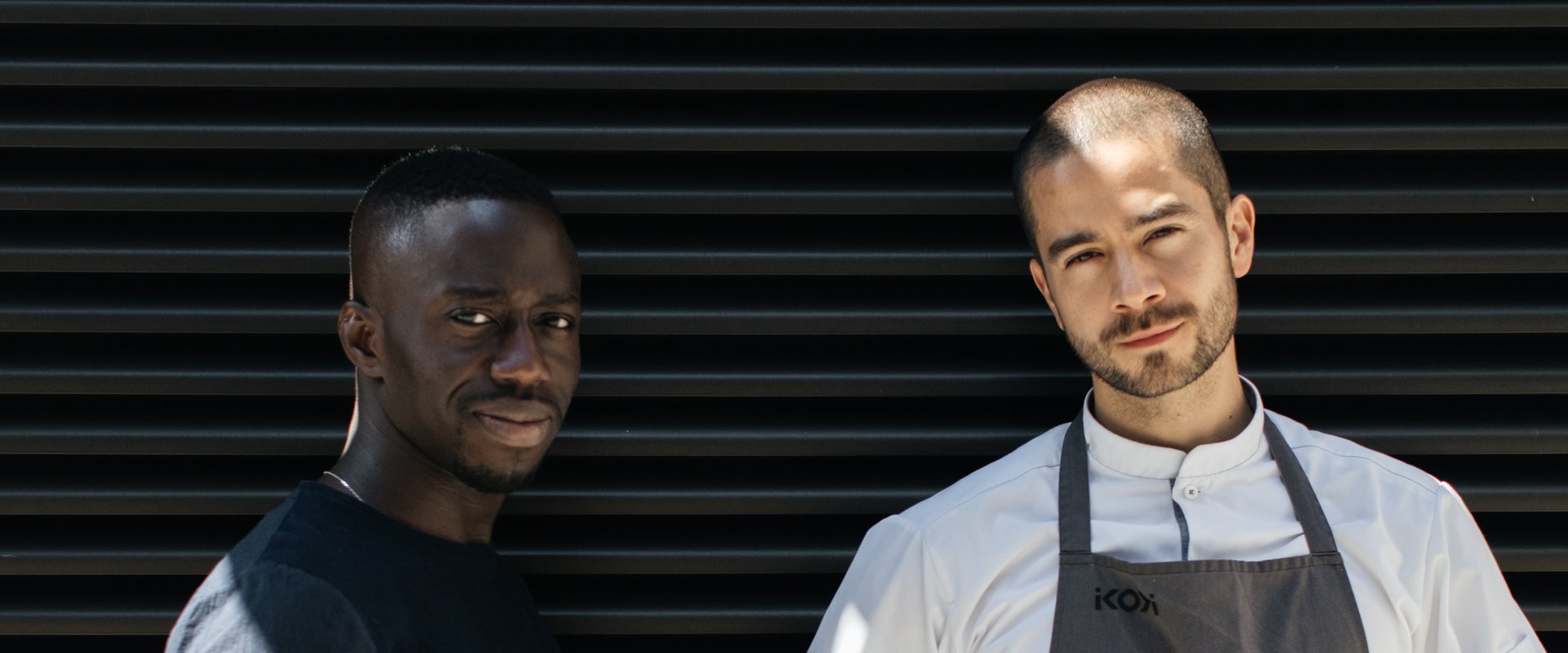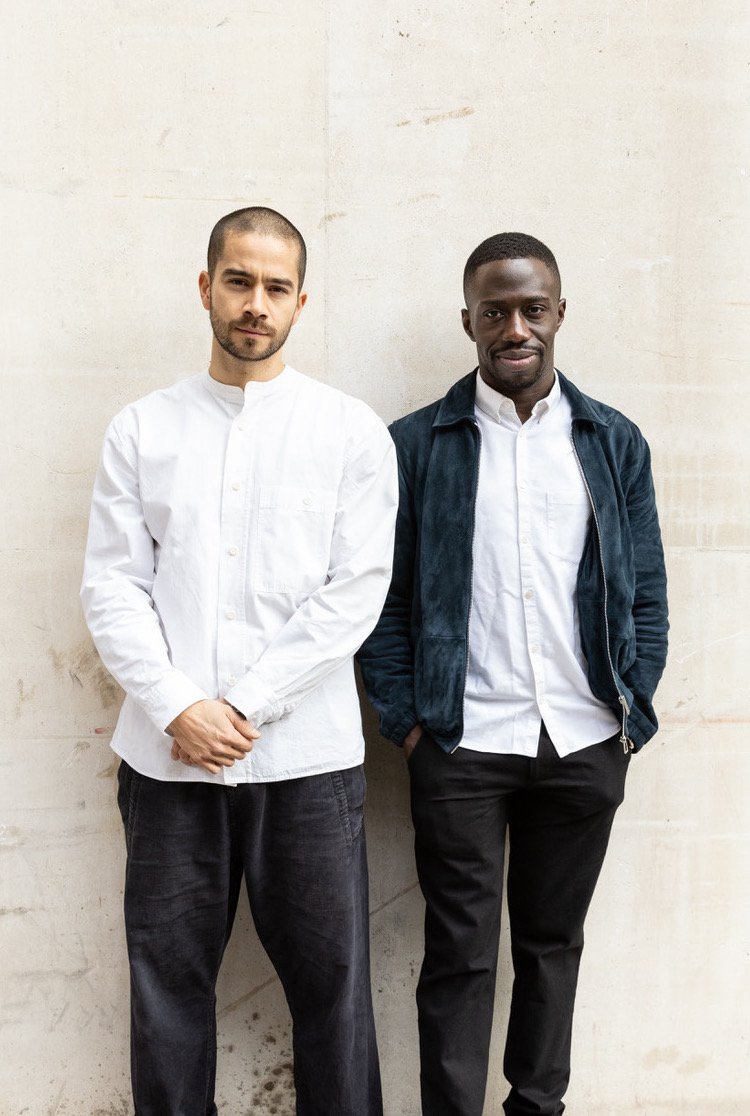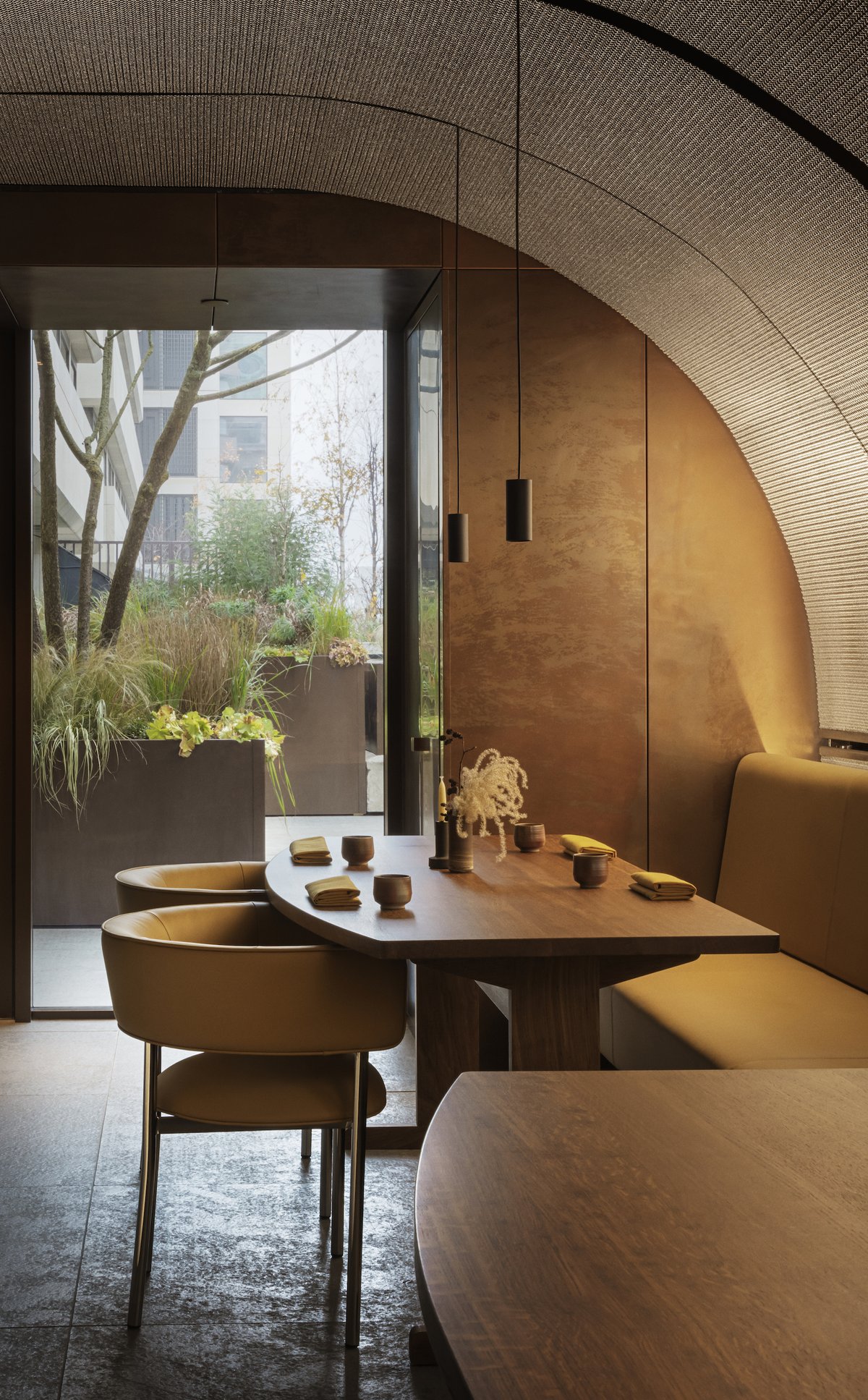The new era of Ikoyi
The end of 2022 marked a truly significant juncture for chef Jeremy Chan and his 2-Michelin-starred restaurant Ikoyi.

The end of 2022 marked a truly significant juncture for chef Jeremy Chan and his 2-Michelin-starred restaurant Ikoyi. He closed the restaurant at its old location and moved it to new premises on London’s Northbank, He had briefly mentioned the move at the halls of Gastromasa conference last November, and his excitement for this new chapter was obvious. Chan has certainly achieved a lot lately. Ikoy was awarded 2 Michelin stars, and on top of that the Ikoy debut cookbook has been released.
Chan himself recalls 2022 as «gigantic, extremely anxiety-inducing but also joyful and triumphant… and exhausting, lots of emotions for one year, I was giving 100% of myself».
And it has truly paid off.
Jeremy admits to having solely written his debut cookbook «Ikoyi: A Journey through Bold Heat with Recipes», as he recalls «I started writing a year and a half ago, and finished in four months, expressing my history, cooking, family, and culture. Why I cook, why I follow certain types of flavour, the origins of my style…» This resulted in a documented journey of Ikoyi, starting from the creation of a 6-course meal for 60 people in the domestic kitchen for events, to the extensive personal research of the bold flavours and spices of West Africa and beyond, followed by the highest accolades.
The special section dedicated to rice describes Ikoyi’s iconic smoked jollof rice dish. A dish that is incredibly complex technique-wise with the balancing of timing and temperature. This ‘to the second’ precision dish is very close to Chan’s heart. This is a dish that speaks volumes about Chan’s approach to cooking, as he elaborates on the origins of the dish. Instead of making unnecessary improvements, he adds a new dimension to it, such as infusing it with smoky notes, inspired by the memories of the Hainanese chicken rice introduced to him by his father.
With its honest and humble essays, the book reveals the realities of how Chan and his friend Iré Hassan-Odukale, who now manages front of house at Ikoyi, started together and went on to be partners for 15 years.
«While some may think we had some big investors who paid for everything. The truth is it’s about two friends who had an idea. We started frying doughnuts in the store. 5 years later we have achieved two Michelin stars, through grinding lots of dinners and private events, starting very small.»
Jeremy does his own thing, his inspiration comes from within.
«Researching, practicing, intuiting, experience and senses. These are the required skills I honed in just a few restaurants. I honestly admit to taking positions for what they could teach me, and I never took a long-term restaurant job. I was never looking for a permanent 10-year-running chef role, in one place, as many do. I took short specific jobs from when I started aged 26».
Staying away from trends and media buzz, it is quite remarkable how Chan safeguards his own creative process. He would rather read non-gastronomy-related literature, preferring to review his own recipes and methods than those of his colleagues worldwide.

Iré Hassan-Odukale and Jeremy Chan ©Cristiana Ferrauti
«I was born knowing that I don’t like to be told what to do and am extremely aware of what is out there for me. That’s why I couldn’t work for anyone else properly long-term since the idea of what I wanted was already clear in my mind, and as it turned out, it was important to listen to myself».
For those calling Ikoyi an African restaurant, Chan proclaims that initially the African element was inspired by Ire’s Nigerian background, and the name was inspired by a neighborhood in Lagos, but it was never planned to reflect African cuisine. Later on, the personal inspiration continued building, with the exploration of vibrant spices, discovering the comfort and complexity of the heat, not only with spices from Africa but from all around the world. In this way, "spice and the heat formed a concept, central elements, indigenous spicy notes strengthen the umami in dishes, giving them power.»
«We work with artisanal producers of grass-fed mutton, wild-caught, line-caught turbot from the Shetland Islands, and hand-dived scallops from Cornwall and Scotland."

Ikoyi’s dining room. ©Irina Boersma
He affirms - “ I understand myself more, my decisions, my research is more refined now, the food is more stable, it’s still a labour of love for me”.
Having been a financial advisor for 2 years in his 20s, Chan recalls the change in his career as meaningful and a personal switch.
«I began questioning the meaning of my existence, which you do when you work in finance when at the end of the day you are stressing about how much profit you have made for the bank. It has a lot of meaning for some people but not for me. It didn’t do anything that left a mark, it didn’t have the real impact that you have when you own a restaurant.»
But what does it essentially mean to Chan to have a restaurant at this point in time? He simply replies that even though he is surrounded by numerous messages from external sources, his integrity shines through. « It is enough to be a good person with common sense. I don’t need to talk about specific subjects, I don’t feel like shouting about our values at Ikoyi. Ikoyi leans toward less conventional systems, and remains on its path - it’s delicious, but can it be more delicious?»
Image credit: Maureen M. Evans
